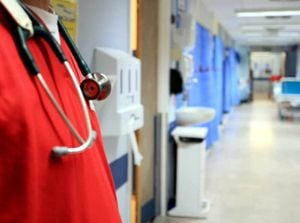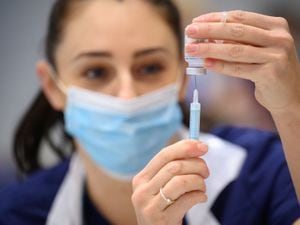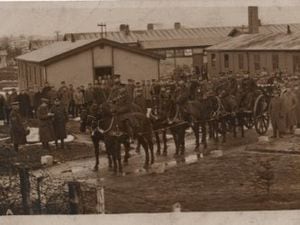NHS has 'pedal to the metal' to deliver for Black Country patients
The NHS in the region has its 'pedal to the metal' to try and tackle backlogs and it is important people come forward for care if they need it, a health chief has said.

Hospitals have been under pressure with large numbers of patients waiting in A&E units, ambulances queuing at emergency departments waiting to handover patients and delays in discharging patients who are medically fit, often due to social care issues.
Covid also caused major disruptions and backlogs in patients waiting for routine operations.
While a GP speaking in an Express & Star investigation this week talked about the 'relentless high demand from patients' and difficulties in recruiting workers.
But a Black Country health boss has urged people to continue to come forward for care if they need it and said organisations are working together in how they can plan for improvement and mitigate risks.
Richard Beeken, chairman of the Black Country Urgent and Emergency Care Board, said: “With every passing year, organisations in health and social care are getting closer together in terms of how they plan for improvement or risk mitigation, whether that's in elective care, primary care or urgent care, and this year has been no exception in pulling together winter plans.
“We have arrangements in place in our organisations and our boroughs to provide the help patients need, as that need is - in urgent care terms - higher now than at any time prior to the pandemic.
"Despite that pressure the number of elective operations being carried out across our hospitals is now at or exceeding levels achieved in 2019 prior to the pandemic.
"So, the NHS continues to have its pedal to the metal to try to deliver."

He said, as a 'system' it will continue to do so, with the help of the public.
"There are a number of things you can do to help us help you," he added.
"It’s important that people still come forward for care if they need it, choosing the right healthcare service for their needs.
"This could be at their local pharmacy for any minor illnesses or using NHS 111 online if they require urgent medical advice, but their condition is not life-threatening.”
Some hospitals have also been using virtual wards to avoid unnecessary patient admissions or reduce their stay length.
While an ambulance receiving centre has opened at Wolverhampton’s New Cross Hospital in a bid to get paramedics back on the road sooner.
The centre provides an additional 17 ambulance offload spaces, as well as extra staff to support with handovers as part of OneWolverhampton Partnership’s plans to ease pressures on the emergency department over winter.
An average of 450 patients per day – 3,150 per week – are currently arriving at the emergency department.
Approximately 100 per day, or 650-700 a week, of those arrive by ambulance and all these will be received into the ambulance receiving centre (ARC), except those that need to be resuscitated.





